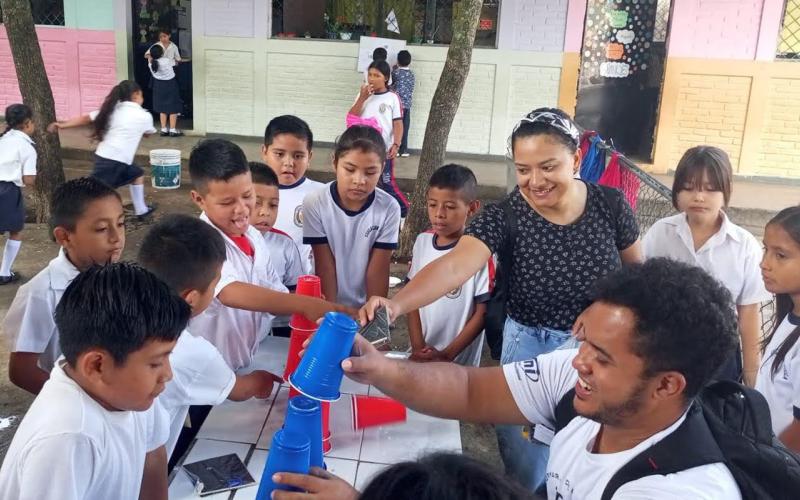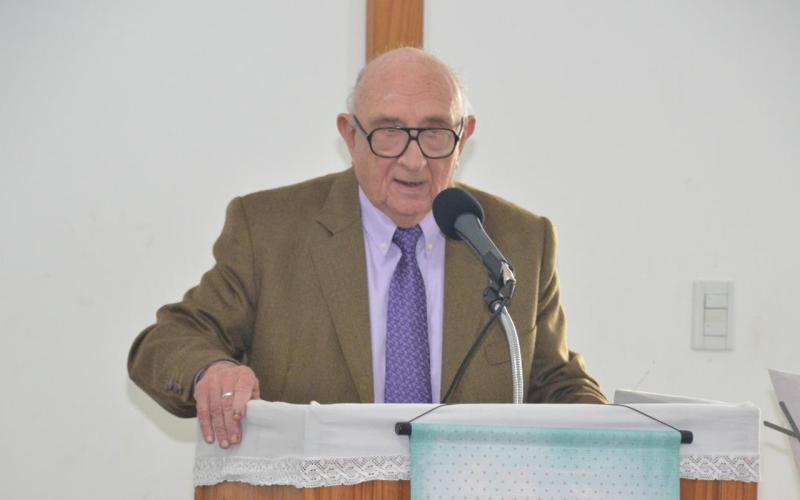
Venezuelan churches grow through prayer, planting

When you have nothing, God becomes your everything.
God becomes your economy. Your doctor. Your counselor.
“The churches [in Venezuela] are growing because they offer hope to the lost, to the people in poverty,” Pastor Jimmy De Gouveia said. “We have learned to pray for God to work supernaturally in healing people because we have no access to medicine, psychology, or psychiatry. We ask the Lord for economic miracles because we don’t have food. In the past, we had money. We could do everything. That was our supernatural, but now our eyes seek Jesus.”
De Gouveia’s church members from time to time knock on doors, asking people if they want prayer. One family took them inside to see Javier, a policeman paralyzed from the waist down after a motorcycle accident. They prayed for the depressed man, and after a couple of weeks, he started walking. He accepted Christ and told them God had given him a new life.
When someone brought to the church a child who was diagnosed with a brain tumor, the congregation knew there was nowhere to turn except to God.
“We prayed for him. He was supernaturally healed,” De Gouveia said.
‘My way of thinking changed’
In Venezuela, there are 85 organized Nazarene churches in five districts. De Gouveia has been leading a church for the past 10 years in San Diego, a town of about 10,000 people outside the capital, Caracas.
De Gouveia began his ministry as a missionary with his wife, Lisbeth, in Guatemala. Ninety-six percent of Guatemalans identify as Christian, according to the Joshua Project. De Gouveia was accustomed to seeing large churches and knew the strategies to make a church grow in that culture. So, when the couple returned to Venezuela in 2006 to plant a Nazarene church, they were confident in the work.
“I thought, ‘well, I know everything I need to know. My church is going to grow pretty fast. It will be the best church in Venezuela.’ I was wrong,” he said.
In one year, his congregation grew from 12 to 30, but it was far below his expectation, and that depressed him. He considered resigning, but God spoke to him: “‘Jimmy, I’m more interested in your personal growth than church growth.’ When I understood that, my way of thinking changed.”
Rather than growing one large church, De Gouveia has nurtured a culture of church planting. In the past four years, the congregation has planted four missions meeting in homes and involving 400 regular attendees. He has trained five couples to pastor the new churches. The congregations are growing in part because God is changing people’s lives and restoring families.
One of the members, a wealthy woman, came to the church in the wake of a divorce after her husband lost everything because of a strike at his oil company. Her children were suffering: two sons were heroin addicts and one of their two daughters had moved away.
The church responded to the mother’s pleas by sending the boys to a Nazarene addiction rehabilitation center, where they accepted Christ and found freedom from drugs. Through their witness and the love of the church, both daughters also accepted Christ. One is married to a pastor and involved in a church in the United States. One son is attending a Nazarene seminary in Canada.
Going to the city
Recently De Gouveia sensed God leading him to plant a new work in Caracas, Venezuela’s largest city.
“I heard the global church talking about the city five years ago,” he said, referring to the denomination’s Board of General Superintendents’ 2009 challenge to plant churches in urban centers. “I think they put something in my heart to go to the cities. God gave me the passion, but the church started the way of thinking in me.”
His vision follows the strategy of his district, and the leaders of the North Andean Field, of which Venezuela is a part.
In Caracas, a city of 8 million, there are four other Nazarene churches, three of which comprise Haitian immigrants. De Gouveia plans to focus outreach to the middle class, which may be better off financially, but which he says still experiences spiritual poverty: dysfunctional families, addictions to drugs, liquor, and other destructive things.
“The major cities in Latin America have drawn people from more rural communities,” a field leader said. “The need for planting the church in these big urban centers is tremendous, and typically our church has planted more churches in rural areas. Jimmy is interested in planting a church in a more urban community. This is a new focus.”
To have time for establishing a church in another city, De Gouveia trained and empowered another for most of the leadership decisions in the San Diego congregation.
De Gouveia then assembled a planting team of six: three lay people and three ministers. They have rented a space where up to 30 people can meet. Two members of the team are William and Maria.
Several years ago, Maria began attending the San Diego church. She and William were living together, but because of conflicts in their relationship, they were staying in separate rooms. The church ministered to Maria and prayed for her. Soon she opened a small group in their house, but William refused to participate.
William was sent to jail because of problems at his job, and when he was released, he began to sit quietly in the house group meetings. After several months, he accepted Christ and he later married Maria. The company he worked for closed, so William started his own business. Before long, he sensed God’s call to ministry – specifically to plant new churches.
De Gouveia’s approach of training and releasing leaders has led to church multiplication.
For instance, one house group leader told him, “Pastor, I think God is asking me to start a new church in [another place].” De Gouveia faced keeping that person in the local church or letting him go. He chose to release him. Today, that man pastors a growing church with 100 disciples and different ministries.
Meeting practical needs
In parts of Venezuela, many people are hungry. The Nazarenes can’t ignore it. In May, the San Diego Nazarene church and three of the new groups, including the one in Caracas, began cooking soup and offering free lunch to members and neighbors who aren’t getting enough to eat. They also offer free bags of groceries.
“Our long-term plans are to have dining halls in those places where we expect the local crisis will continue,” De Gouveia said.
The churches started by funding the food ministry from their own resources; at the end of the May, Nazarene Compassionate Ministries provided them a small grant to continue and expand the work.
“It’s something Jimmy has really brought to our attention,” said a field leader. “They’re going to try to feed 300 people each week.”



